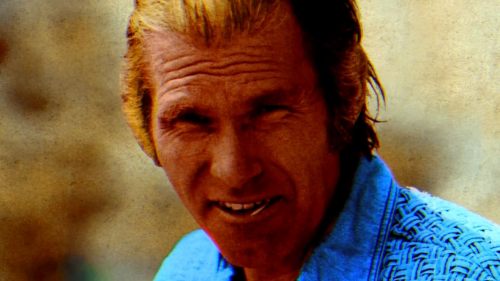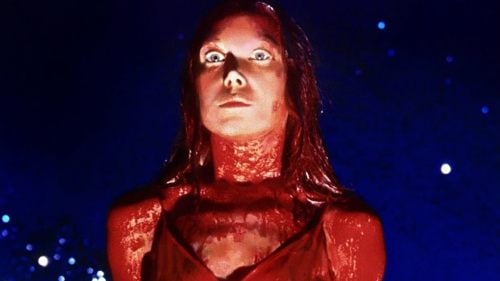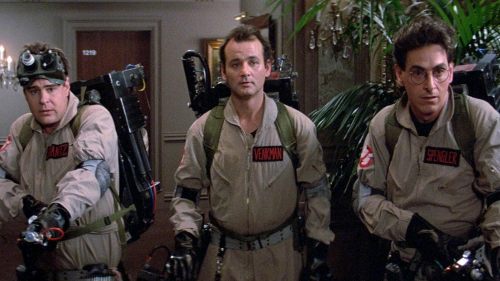Collins’ Crypt: No Lessons Learned From PET SEMATARY
"This movie's getting locked up until 2032."
That was my final say on Mary Lambert's Pet Sematary from an article I wrote shortly after my son was born, which was a list of the movies I didn't think I'd be able to watch again, because at that time I was spending every waking moment in constant fear that something would happen to my beloved child. Luckily, I've gotten less panicky over the past four-almost-five years (Jesus...), so not only am I able to sleep again, I could rewatch the film thirteen years earlier than I once assumed, and even watch this week's new adaptation with minimal fretting (despite the advanced knowledge that they were making changes and I might not be able to steel my nerves because I knew what would happen). Naturally, the new accident scene still left me with a lump in my throat, and in turn I may have checked on my kid an extra time that night before going off to bed myself, but that paralyzing, "no no no no no" kind of reaction I used to get from movies like that? That was gone entirely.
...until I stupidly decided to re-read the original novel by Stephen King, for the first time as a father.
Now, the first film and most of the new one (fair warning, there will be SPOILERS for those who haven't seen the new film yet) are fairly faithful to the novel, especially when it comes to the character of Louis Creed i.e. the guy I most easily identify with. So why am I okay with the movies now while the book had me literally tossing it aside at one point so I could calm down with a few home videos of my son? Why was I able to watch that infamous truck accident scene without pause, but had to stop TWICE to get through the (less than three page) description of Louis opening up Gage's coffin? It's the mundane details, something both movies largely lack. The part in the book that had me throwing it onto my nearby couch wasn't even the accident; it was an interlude of sorts where Louis and Gage fly a kite together, having one of those perfectly lovely but normal days I myself have had with my son. There's nothing horrific about the scene at all, until King does the thing he loves to do and informs the reader that someone in that scene will be dead soon, in this case the adorable toddler.

I recently read King's Joyland and even tweeted about his penchant for doing this, noting that in that particular book he was utilizing the device more often than usual. But in that one it made sense - the story was being told by the main character in the present, recounting an idyllic summer where he lost his virginity and also solved a decades-old murder (on separate occasions, I should stress). So it makes sense that he'd frequently talk about people in the past tense and "get ahead of himself" as he told the story. In Pet Sematary, there's nothing really like that for a while - it's being told in the present tense, there's no first person narrator, etc. So when the passage about Gage and Louis having their perfect day ends with "And Gage, who now had less than two months to live, laughed shrilly and joyously," I lost it.
There's a few reasons for that, the main one being that like all adaptations (especially King's), the movies have to race through a lot of things to get to all the important parts, and so we never got as much time with Gage (or Ellie, in the new one) as we do in the book. Here, we learn that his favorite cereal is Cocoa Bears and that he has a penchant for copying his big sister (even when she swears), we fret during his brief bout with the flu, we know he hides Matchbox cars under the couch... he's fleshed out enough to make him more of a real person than just a soon to be dead baby (it doesn't help that in the movie, the mom even refers to him as "the baby" far more often than by his actual name). Plus, even though I know it was coming from knowing the story, having that advanced notice kind of makes you feel more helpless as you press on and get to the inevitable a few pages later, which doesn't help matters any.
But also, oddly, it reminded me of my cat Butters, who I hadn't thought much about until then despite what should have been any number of triggers. Now, anyone who knows the story knows that Church (short for Winston Churchill) is the marquee "monster" of the story, since Gage's revival is kind of a spoiler (the book is past the halfway point when he gets run down; there's less than 10% of it left when he returns), and it's the cat's return that gives the story the bulk of its scares (and also sets the plot in motion). However, despite Church's presence and the descriptions of all those other pets in the proper "sematary", it wasn't until King teased Gage's death that the fairly recent loss of my own cat really resonated. It was on Halloween night when I got the call from the animal hospital where he had been for the past day (after acting strangely enough to worry me and race him there) that he wasn't taking to the procedures, and the tests still weren't discovering what was wrong with him, and so I had to drive down there and say goodbye to my best pal on what is normally my favorite day of the year.
I think that's the main reason I got so upset at the book - King was practically giving us a date that it'd happen, whereas my "other" child was there and normal one day, gone the next - I didn't get that heads up or subconscious desire to have one more great day with him. And for the life of me I can't think of my own last normal/content time with Butters: did he sit with me the night before while I played Xbox? Did I give him a back rub in the morning when he woke me up to be fed as he usually did (with a gentle swat to my face), or did I tell him to bug off and let me sleep for a few more minutes? And those trains of thought always end in the same way: "If I knew he'd be dead tomorrow, I would have done it differently." Hell, even in the new movie, where Church's death is changed from Thanksgiving to Halloween, I didn't really get too worked up (beyond a brief "Oh you jerks" kind of humored eye roll at the coincidental change), but King teasing us with the possible idea that Louis subconsciously knew his time with his son was coming to an end really hit me in the gut. I got to say goodbye to my furry pal (Will did not, alas), but he was hooked up to machines and (thanks, doc, for needlessly telling me this as they prepped that final shot) "didn't even realize I was there", so that's no final memory to cherish.

The book also gives us something neither movie ever really pulled off: making Louis seem less stupid for using the Micmac burial ground deep in the Ludlow woods. In the movie(s) it comes off as a sort of mix of shock and anger that the man does it, with seemingly no hesitation, but here we get his inner turmoil, how many times he considers abandoning the plan, etc, only to be prodded along by some force. The 1989 movie skips over any reasons Jud may have for even telling Louis about the place at all, but the new one at least attempts to explain it both with the supernatural (John Lithgow's Jud hears voices/sounds at one point, as if egging him on) and with some decent horror-movie logic - Jud says his childhood dog was mean anyway so he didn't think much of it when it came back as such, thus never realizing that the place turned things evil upon their return.
The new movie also offers a moment not seen in the older movie or even King's novel: a brief scene where we see Louis get everything he wanted, albeit momentarily. While both incarnations of Gage just instantly got to killing after crawling out of the grave (again, it accounts for the final 35 pages of the nearly 400 page book, and only covers the last 20 minutes of the 1989 movie), the revived Ellie takes her time. The morning after she comes back, Louis (Jason Clarke) comes downstairs and sees her dancing in the living room; apart from her pallid skin and dirty clothes it could have been any random morning, back to normal. Louis even smiles a bit; probably the last time in the movie we see him do so, and then reality comes crashing back as she starts smashing things in the living room as part of her routine. But for that briefest of seconds, we see exactly what the other Louis Creeds and any other parent who ever read the book/saw the movie and said "I'd probably do it too" wanted: just to get to live through one of those mundane moments again.
There's a poem called "The Last Time" (author unknown) that I've never been able to read without crying since Will was born, which rattles off the things parents don't notice are gone until they are: the last time a child falls asleep in your lap, the last time he/she reaches for your hand to cross the street (fitting example for this story!), etc. I get about as far as "read a final bedtime story" before losing it, and there are already a few personal examples that are no longer happening and naturally, I can't remember when exactly they stopped. The genius of King's book - and in their own way, both movies - is that they illustrate the ultimate loss and give the reader/viewer a glimpse as to what can happen if you play God and find a way to keep those last times at bay, seemingly to convince you that it's best to accept the loss and move on... but without ever convincing Louis Creed, who just goes right up the damn mountain a third time. Because King knows logic goes right out the window when it comes to these things, and he'd be a hypocrite to suggest any parent would be able to completely ignore the allure of getting another moment, whatever the circumstances.



